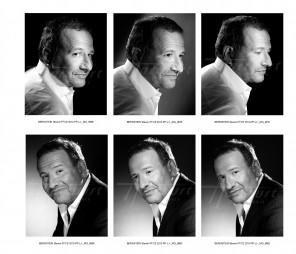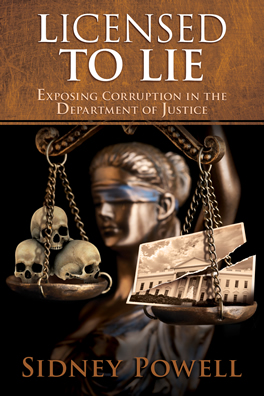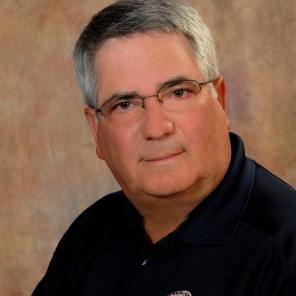No matter what side of the political fence you stand on, this book is remarkable.
 Director/ Screenwriter Steven Bernstein writes about Licensed to Lie:
Director/ Screenwriter Steven Bernstein writes about Licensed to Lie:
The story of Enron, Ted Stevens, and the legal and personal aftermath, at least as it was popularly presented, became part of the collective zeitgeist and was set in stone. None of us has the time or inclination to understand the minutiae of every event, no matter how significant. Certainly what went down in Texas, Washington, Alaska, and New Orleans was significant, but few of us have knowledge of what really occurred.
I was certain Ted Stevens was crooked. I was also certain everyone at Arthur Andersen and Enron was crooked. As it turned out, some were, but remarkably a lot weren’t. People who were convicted were innocent and went to prison. This should concern everyone.
What is even more shocking is that the federal prosecutors whom I had always presumed to be full of virtue and zeal had much more zeal than virtue and that the crimes here went beyond the excesses of some Enron executives. This is worse. Quis custodiet ipsos custodes?
What Eron did was terrible, but the moral advantage of government over the private sector interest is accountability. If the private sector fails us, we cannot vote them out, unless we have a whole bunch of shares which we mostly don’t. But the beauty of government is accountability, and it is essential that those individuals who, like the police and prosecutors, are granted extraordinary powers must also be subject to extraordinary limits and controls over those powers. Tyranny is not giving government power. Tyranny is giving government power that is not regulated and controlled.
Sidney Powell weaves an extraordinary tale of federal prosecutors run amok seemingly with little control. In my own mind, I am certain they thought they were doing good, but their substantive misconduct that Ms. Powell uncovers is so egregious and far reaching that it goes to the very foundation of our democracy and how it may be at risk.
This is a brave book. The taking on of the forces that Ms. Powell attacks can do her no long term good, but clearly she is serving a higher calling: the rule of law.
I know Sidney Powell. She is a force. Almost six feet of southern woman who has a limitless hospitality and generosity of spirit but who simply cannot countenance the slightest corruption. In her friends, she can barely forgive it; in those in power, she finds it unconscionable. This is Sidney. I live in Los Angeles in the grey of the marine layer but also the grey of moral uncertainty. Sidney visited here, and it was not just her height that made her stand out. She was genuinely shocked by all she surmised. This is not how she conducts business. Sidney is a woman and a lawyer who believes in important things, and I am certain what drove her to write this book was no particular axe that needed grinding, though she has a well sharpened one in her literary hand. Rather, Sidney witnessed something that was simply wrong, and she is one of people burdened with the sense that wrongs should be righted and truths should be told.
Boldly, bravely, dangerously, and elegantly she does that in this book. I couldn’t put it down. Like a great novel, it revealed much of the human condition and of human frailty. It was a frightening book for those who fear for our way of government, but ultimately it is a triumph. It is significant that this book can be published and these things can be said. No tyrant would allow this to be printed because it indicts some of the most powerful jurists in the land. So it should be a point of pride for all of us that Sidney can speak up without fear of recourse because this courageous discourse, this calling to task of the corrupt, is the foundation of our democracy. Bravo Sidney Powell.
Steven Bernstein, Writer/Director of Dominion











2 Comments
SIdney, My Story is one of factual and actual innocence. I was convicted for criminal tax evasion by means of filing fraudulent 1040 returns (95/96).
First, the returns were not alleged to be fraudulent in the statutory NOD’s and thus fraud penalties were not imposed by the Tax Court (6-21-2001);
Second; the Indictment did not allege the returns were fraudulent nor did the indictment allege evasion of payment of the additional tax assessed in accordance with the Tax Court summary judgment against me - thus no crime was alleged by terms of the indictment;
Third, the indictment was issued after the 6-year limitations period had expired from the date I filed the returns;
Fourth; the Indictment did not confer subject matter jurisdiction to the federal court and unlawful imprisonment violate my 5th amendment right against double jeopardy and even if I had filed fraudulent returns the government and the judges were barred from imprisoning even if was guilty,
Fifth, the Ninth Circuit judges refused to give me Cert of Appealability knowing that the government and the Ninth Circuit judges had willfully violated their judicial authority by overturning the US Tax Court judgement to imprison me for a crime that was not alleged to exist after IRS audited the returns in 1999.
So it is a matter of NINTH CIRCUIT JUDGES COVERING UP WILLFUL VIOLATION OF THEIR INDIVIDUAL JUDICIAL AUTHORITY- because we cannot rely on the rule of law we all doomed to tryany - a FEDERAL INDICTMENT IS A CONVICTION IN THE FEDERAL COURTS
I wanted to bring a law review paper to your attention that I think speaks to both sides of this troubling issue — prosecutorial misconduct also occurs to allow guilty public officials and law-enforcement to go free at the expense of the victim. There are many victims — not only the falsely accused, but also crime victims whose cases are intentionally tanked because of the status of the perp.
This law review paper on “judicial betrayal trauma” was just published this past month, and includes my case. An official apology letter from the local prosecutor is included.
The psychological betrayal trauma component of these cases cannot be understated, and it is my hope that my own story brings awareness of these issues, and that others who suffer at the hands of our judicial system will be able to contextualize their own reactions through betrayal trauma theory.
Here is the link:
http://dynamic.uoregon.edu/jjf/articles/sgf2014.pdf.pdf
Please let me know if there is any way I can help. I am working on a documentary, and would really like to talk to someone who knows this field about who to interview, and what case/s to include that are current.
Thank you for exposing the wrongdoing that you have observed, and for bringing this issue to light. What happened in my case devastated me, and it took me 35 years to learn the truth about the case, and why a dangerous pedophile was not imprisoned — likely due to his status as a former local police officer. I think that the issue of law-enforcement protecting their own, even when it comes to the most heinous crimes imaginable, is the next Catholic Church and Penn State child sex abuse story that has yet to be told. Children’s lives are at stake and we need to do something to stop these betrayals of our most vulnerable citizens.